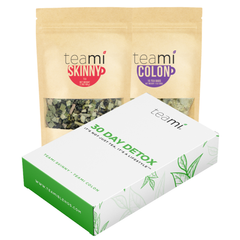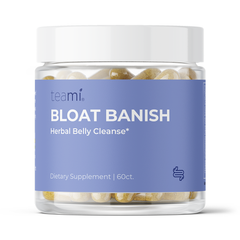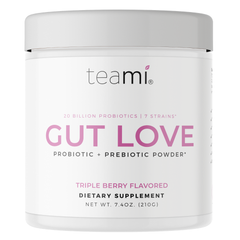The Best & Worst Foods for Gut Health

When it comes to gut health, there are so many articles about what you should and should not eat. It can be challenging to know what to eat or what supplements to take to keep your tummy happy.
But what do you do when you get conflicting information? How can you make the best decisions for your situation, to keep yourself healthy?
Research shows that proper gut health leads to better brain function. So, following your gut could be more important than you thought! The gut-brain connection is key to proper health and performance in all areas of your life.
Not all foods are created equally. If you want to know the worst foods for gut health, read on. You'll never have to question your decisions again!
Why is Gut Health Important?
Your gut is full of bacteria, some good and some not.
Good Bacteria:
- Aids in digesting your food
- Destroys bad bacteria
- Produces vitamin K, Folate, and short-chain fatty acids
Not having good, flourishing bacteria in your gut can cause an imbalance that can lead to severe health issues. Some of these are insulin resistance, weight gain, inflammation, and in the worst cases, bowel disease or colorectal cancer.
Abundant and diverse gut bacteria is the best way to ensure a healthy digestive system, and avoid or reduce your risk of any issues in the future.

The Absolute Worst Foods for Gut Health
So, what foods are doing the most damage to your gut health? What foods should you avoid to make sure that your gut functions as needed? What foods are harming your good bacteria?
Here are the worst foods for gut health, and why:
- Sugar: Excessive consumption of sugar can lead to constipation, headaches, bloating, heart problems, and obesity. While it can be challenging to cut out sugar, a healthy gut will be worth it.
- Diet Soda: The artificial sweeteners in diet sodas may damage gut bacteria, raise the risk of type 2 diabetes, and could lead to glucose intolerance.
- Factory Raised Meats: Many animals raised for meat in a factory are given antibiotics to avoid infections while in their close quarters. Red meat, poultry, and fish all fall in this category. Animals raised in close quarters require heavy medications to keep them healthy, which increases the risk of this transfer.
- Dairy: Like red meat, dairy carries antibiotics that are given to the animals to prevent infection. Excessive consumption, even if you aren't lactose intolerant, can damage your gut bacteria.
- Nightshade Vegetables: While vegetables are healthy, some like tomatoes, eggplant, potatoes, and bell peppers contain gut damaging glycoalkaloids known to cause inflammation. Not everyone will be sensitive to this, but it could cause you stomach discomfort if you are.
- Processed Foods: While processed foods are convenient, they are full of preservatives that can wreak havoc on your gut bacteria.
- Fried Foods: These types of foods are high in oils and fat, which can lead to diarrhea and an upset stomach. Roasted or baked foods are better options
- Gluten: Even if you don't have celiac disease or an intolerance, gluten can cause bloating, inflammation, and fatigue. Cutting out gluten can reduce your risk of these uncomfortable side effects.

The Absolute Best Foods for Gut Health
Now that you know what foods to avoid, how can you fill in your diet with the right foods for your gut?
- Foods Rich with Fiber: Foods like vegetables, fruits, beans, and whole grains help keep you regular and is a type of fuel for your good gut bacteria. Be careful not to have too much fiber, though, as it could cause diarrhea.
- Foods with Inulin: Inulin is a type of prebiotic fiber that promotes healthy gut flora. Some of the most common sources are asparagus, garlic, and onion.
- Fermented Foods: Foods gain natural probiotics during the fermentation process. Excellent sources of probiotics from fermentation are sauerkraut, kombucha, and kimchi.
- Whole Grains: Whenever you can, choose whole grains rich in natural fiber and omega-3 fatty acids.
- Leafy Greens: Greens like spinach, kale, and collard are rich in fiber as well as vitamins C, K, A, and folate.
- Lean Proteins: Fish, shellfish, and poultry are excellent lean meat options that are good for the gut. Try to only choose clean meats (no antibiotics or added hormones) and steer clear of high-fat meats whenever you can.
- Low-Sugar Fruits: Fruits have a wide range of natural sugars. The best for your gut are berries, citrus, and bananas.
- Choose Organic: When shopping, try and choose organic foods wherever possible. Organic foods are free of pesticides, herbicides, antibiotics, and other unnatural hormones that can disrupt your healthy bacteria and affect your health.
What Things Harm Your Gut Bacteria
While it's easy to avoid certain foods, there are many other things that you may do every day that could be harming your gut.
- Too much stress: Stress can increase your sensitivity, reduce blood flow to your organs, and alter the bacteria in your gut.
- Not getting enough sleep: Sleep is vital to your whole-body health. Depriving yourself of sleep can lead to changes in your gut flora and could increase your risks of obesity, type 2 diabetes, and heart disease.
- Smoking: Tobacco harms every organ in your body and increases your risk of inflammation in the bowels and digestive tract. Quitting smoking can increase the diversity of flora in your gut, which leads to healthier digestion.
- Drinking too much alcohol: Excessive consumption of alcohol can cause gut toxicity and increases the risk of dysbiosis.
- Not getting enough physical activity: Regular exercise promotes the growth of healthy gut bacteria.
Supplements for Gut Health
If you've got years of bad habits wreaking havoc on your tummy, you may want to consider a supplement to jumpstart healthy flora growth. It's also a great idea to use supplements after taking an antibiotic. Supplements can help rebuild any bacteria losses you may have as the antibiotic kills the infection.
Here are some of the best supplements for your gut:
- Probiotic: These living organisms can help rebuild good bacteria, support healthy digestion, and can relieve IBS (irritable bowel syndrome) symptoms.
- Chamomile: Whether you drink it as a tea or take it as a supplement, these gentle flowers are known for many beneficial properties. Chamomile can help problems like an upset stomach, nausea, anxiety, and insomnia. If you have allergies to ragweed, it's best to talk to a doctor before using it.
- DGL (Deglycyrrhizinated Licorice): A natural remedy for indigestion, heartburn, or acid reflux. Licorice in its natural form could cause high blood pressure, but DGL removes those properties. Pregnant women shouldn't take DGL.
- Ginger: Ginger has been popular with expecting mothers for a long time, but the benefits can go beyond pregnancy when it comes to stomachaches and nausea.
- Peppermint Oil: This can help ease IBS and lessen pain associated with bloating. Be sure only to take peppermint oil in small doses.
- Psyllium: The high fiber content in psyllium absorbs water in the intestines to make stool easier to pass. Some people with food sensitivities may not want to take psyllium, so it's best to consult a doctor first.
- Artichoke: The leaves of this plant can ease indigestion. Daily use can decrease the effects of nausea, vomiting, gas, and abdominal pain. Those with ragweed allergies may have an allergic reaction to this.
Before taking any new supplements, it's always best to consult your doctor beforehand. If you're taking medications or if you have any environmental sensitivities, you could be at a higher risk for adverse reactions.
Take Good Care of Your Gut
Your gut is responsible for many different parts of your health and wellness. Your stomach is at the center of your body. It's where you consume fuel for all of your daily activities.
Avoiding the worst foods for gut health means that you will have to be conscious of every decision you make before you dine. You will need to make the best choices every time to avoid the uncomfortable results of poor gut health.
It's vital always to remember how important your gut health is and the way it directly connects to your other organs and your brain. Protecting your gut means safeguarding your whole body.
When in doubt, looks at the ingredients and make sure the fuel you put into your body is pure. If you do slip up, take the proper steps to heal and nourish your gut flora afterward.
But, if you ever feel that your gut is underperforming, it's essential to consult your physician for some additional help and guidance.
For a real jumpstart, consider our detox starter pack to get you on the path to health and wholeness.

Love,
Adi Arezzini | @adiarezzini
Co-Founder + CEO, Teami Blends
Certified Holistic Nutrition Coach
Take Control of Your Gut Health with Teami
Subscribe to our Newsletter
Subscribe to our newsletter and get 10% off your first purchase



 Instagram
Instagram



